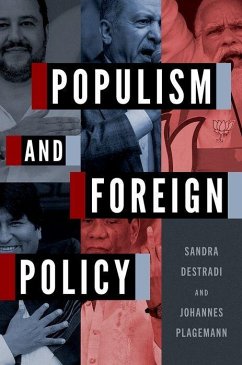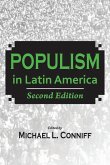How and why does the formation of populist governments lead to changes in foreign policy? This book theorizes and empirically analyzes how populism, understood as a thin-centred ideology, impacts foreign policy. It argues that two common features of populists' foreign policy, the use of foreign policy issues for domestic political mobilization and the personalization of decision making, are key to explain different intensities of foreign policy change. The strongest change can be expected if both mobilization and personalization in a specific issue area are strong. More moderate changes are a result of a combination of strong mobilization and weak personalization, or weak mobilization and strong personalization. The empirical analysis focuses on transitions from non-populist to populist governments in Bolivia, India, the Philippines, and Turkey. It addresses foreign policy change in four fields: the escalation of international disputes, the provision of global public goods, the engagement in multilateral institutions, and the reorientation of each country's international partnerships. As a part of an abductive research process, the theory of populism and foreign policy initially applied to cases from the Global South is then also used to analyze populist governments' foreign policies in Hungary, the UK, and Italy.
Bitte wählen Sie Ihr Anliegen aus.
Rechnungen
Retourenschein anfordern
Bestellstatus
Storno








